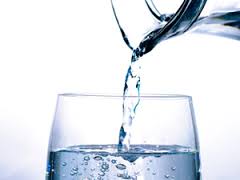It is hardly unknown that water happens to be one of the important constituents of balance diet. In order to be as right as rain, drinking water is of paramount significance. As one of the vital nutrients, it has diverse array of roles to offer. Similar to having a scheduled dietary regimen, it is important to have a planned out regimen guiding the regular intake of water.
Importance of water in the human body
- Two third constituent of human body is dependent on water.
- As an important mechanic, body cannot carry out & sustain its functions without water.
- Water controls the functioning of different anatomical units comprising human body.
- Also described as universal solvent, it forms the foundation of different biological activities.
- Water serves as a major agent of detoxification.
- Regulation of temperature and that of metabolism is facilitated through water.
- Water provides for effective lubrication.
- Besides being the basis of saliva and fluid guarding the joint system, water prevents human body from diseases of different kinds.
- Each and every human cell needs water for its sustenance, be it the blood cell or neuron the smallest unit of the nervous system.
- Water has its part to play in the transportation of nutrients.
- As far as the absorption of nutrients is concerned, water has its role to offer.
Daily requirement of water for human body
- On a regular basis, human body needs 2 to 2.5 liters of water.
- It is important to note in this regard that food items with enriched moisture also add to the body’s need for water.
- Thus consumption of food item leads to the intake of 1 liter of water.
- So it is important that drinking water takes care of the remaining water supply varying from 1.5 to 2 liters is provided.
Water requirement by the human body
- Though the thumb rule of eight glasses or that of eight ounces generally characterize body’s requirement of water, in reality factors such as individual weight, height and climatic variation should determine the specific need.
- Apart from the height and weight index, nature of activity you are involved in also has its role to play.
- In order to arrive at the specific amount required, one kind of measurement gears to the division of body weight by two.
- Convert your weight into pounds and have it divided by two.
- The quotient points to the individual body’s requirement of water.
- However, the above mentioned guideline should not be taken as a standardized unit of measurement.
- Rather mentioned factors of age, weight, height, and nature of activity should be borne in mind while fulfilling the body’s requirement.
- Physicians also recommend about going by and fulfilling the calls of thirstiness.
- Do bear in mind that water may be synonymous to life and living but over drinking of water may lead to toxicity.
- Over drinking may unnecessary expose your kidney, heart and systems composing them to un-called for risks.
Water requirement by men, women and children
- Keep in mind the factors mentioned previously.
- Amount of water lost by individual person also becomes one of the determining factors.
- Keeping in mind the amount lost by an individual person, it has been opined by doctors, experts and nutritionists that men tend to lose water more than women.
- Hence, while men’s need for water can vary between eleven to thirteen cups, women’s requirement for water need not be more than nine to ten cups.
- Women in pregnancy and those involved in breastfeeding tend to lose more amount of water.
- Hence, if you belong to one of these categories your need for water will vary between eleven to thirteen cups.
- Similarly growing children require additional amount of water to sustain their fast pace of growth.
Symptoms of dehydration or water loss
- As a necessary solvent, correlation has already been established between water and anatomical functions of human body.
- It has also been established that loss of water should be replenished by consumption or drinking of water.
- It is natural to lose water and loss of water results owing to causes of perspiration, bowel movement and overall metabolism of the human body.
- When the loss of water exceeds the rate of intake, condition of dehydration sets in.
- There are some specific symptoms of dehydration including thirst, hunger and exhaustion.
- Thirst is one of the most common signs of dehydration. It is an obvious condition calling for the intake of water.
- With sufficient consumption of water, urine should appear clear in color. Change of coloration to pale yellow is one of the signs of dehydration.
- Weakness, decrease in the production of urine, dryness of mouth, muscular cramps and feeling of nausea are also some of the associated symptoms of dehydration.




No comments:
Post a Comment